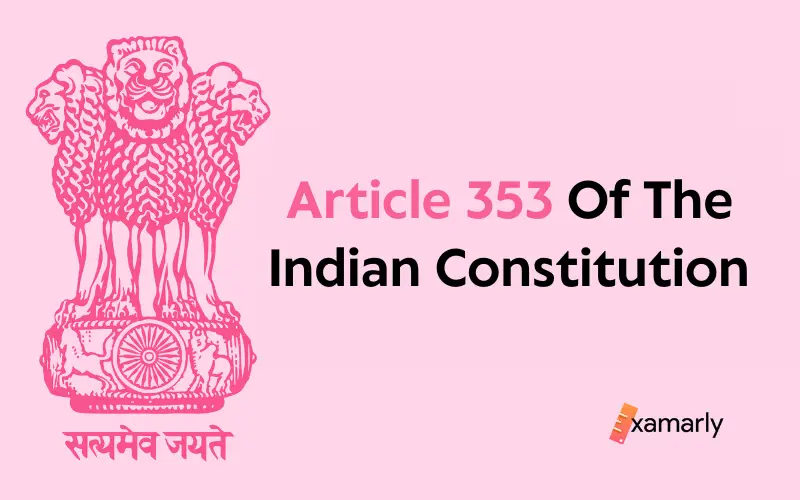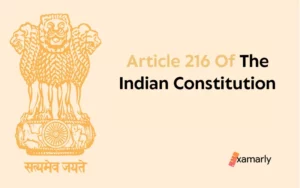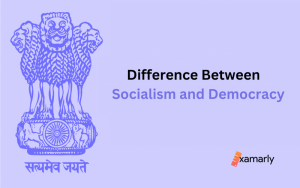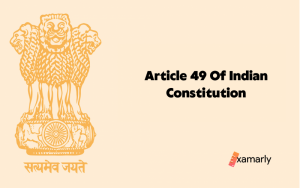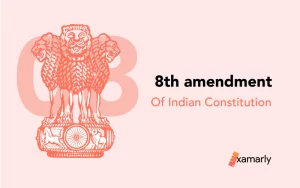Have you ever wondered what are the impacts of Proclamations of Emergency on India and its people? Does it affect the administration and smooth functioning of the country?
Article 353 of the Indian Constitution sheds light on the effects of National Emergency with respect to Centre and State Relations as well as its effect on the Fundamental Rights of the citizens.
Article 353 of the Indian Constitution outlines the powers and responsibilities of the Union during a state of emergency. This article gives the Union the authority to take over the administration of a state if it is deemed necessary for the protection of the country’s security or the maintenance of public order. The proclamation of emergency under Article 353 has far-reaching effects on the rights and freedoms of citizens, as well as on the functioning of the government and the judiciary.
- Background of Article 353 Of The Indian Constitution
- Article 353 Of The Indian Constitution – Effect of Proclamation of Emergency
- Conclusion
- FAQs Related to Article 353 Of The Indian Constitution
- What is the purpose of Article 353 of the Indian Constitution?
- How does a Proclamation of Emergency affect the power of the Union government?
- What is the effect of a Proclamation of Emergency on the power of Parliament?
- How does a Proclamation of Emergency affect the power of state government?
- Is the power of the Union government during a Proclamation of Emergency limited to specific subjects?
- Has Article 353 of the Indian Constitution been amended?
Background of Article 353 Of The Indian Constitution
Before we dive into the details, let’s take a look at the background, debates, and adoption of Article 353 of the Indian Constitution.
Article 276 of the Draft Constitution of India, 1948 stated:
Where a Proclamation of Emergency is in operation, then, notwithstanding anything contained in this Constitution:
(a) The executive power of the Union shall extend to the giving of directions to any State as to the manner in which the executive power thereof is to be exercised;
(b) The power of Parliament to make laws with respect to any matter shall include power to make laws conferring powers and imposing duties or authorising the conferring of powers and the imposition of duties upon the Government of India or officers and authorities of the Government of India as respects that matter.
- On August 3, 1949, Draft Article 276 (later known as Article 353) of the Constitution of India was debated.
- The article granted the Union executive the power to direct state government executive powers during an emergency.
- Additionally, it further expanded the Union Government’s executive powers by giving the Parliament the power to make laws.
- The drafting committee chairman proposed an amendment clarifying that parliament’s power to expand the Union executive’s powers is not limited to subjects listed in the Union List.
- The amendment was adopted by the Assembly without debate.
- The chairman also proposed a minor amendment which was also adopted.
- Draft Article 276 was adopted with amendments on August 3, 1949.
- In 1976, Article 353 of the Indian Constitution was amended to extend the powers of the Union parliament and executive to exercise its powers to any state even if the proclamation of emergency is related to only one particular state or territory.
Article 353 Of The Indian Constitution – Effect of Proclamation of Emergency
Clause (a) – As it is & Explained
While a Proclamation of Emergency is in operation, then— (a) notwithstanding anything in this Constitution, the executive power of the Union shall extend to the giving of directions to any State as to the manner in which the executive power thereof is to be exercised;
The first clause of Article 353 of the Indian Constitution states that, when a Proclamation of Emergency is in effect, the executive power of the Union is extended to give directions to any state government as to how they should exercise their executive powers. This means that the Union Government can give specific instructions to the state governments on how they should handle certain situations or issues, and the state governments are obliged to follow those instructions.
This provision is included in the Constitution to ensure that the Union can take quick and effective action to deal with a crisis situation, such as a war or natural disaster, that threatens the security or integrity of the country. During an emergency, the Union may need to take control of the administration of a state or even multiple states, in order to ensure that the necessary measures are taken to protect the country.
This provision overrides any other provision in the Constitution that may limit the Union’s power to give directions to the state governments. It also allows the Union to bypass the normal channels of communication and coordination with state governments, in order to take swift action in an emergency.
It’s important to note that the power given to the Union under this provision is not unlimited, it’s to be used only during a National Emergency and only for the purpose of protecting the security or integrity of the country and should be done in a manner consistent with the Constitution.
Clause (b) – As it is & Explained
(b) the power of Parliament to make laws with respect to any matter shall include power to make laws conferring powers and imposing duties, or authorising the conferring of powers and the imposition of duties, upon the Union or officers and authorities of the Union as respects that matter, notwithstanding that it is one which is not enumerated in the Union List: Provided that where a Proclamation of Emergency is in operation only in any part of the territory of India,—
(i) the executive power of the Union to give directions under clause (a), and
(ii) the power of Parliament to make laws under clause (b), shall also extend to any State other than a State in which or in any part of which the Proclamation of Emergency is in operation if and in so far as the security of India or any part of the territory thereof is threatened by activities in or in relation to the part of the territory of India in which the Proclamation of Emergency is in operation.
The second clause of Article 353 of the Indian Constitution is outlining the powers of the Indian Parliament in relation to making laws. Specifically, it states that Parliament has the authority to make laws that confer powers and impose duties on the Union government or Union officials, regardless of whether the matter is listed in the Union List. This means that even if a particular matter is not specifically listed as something that the Union government has the authority to handle, Parliament still has the power to make laws that give the Union government the authority to take action on that matter.
However, there is an important provision included in this passage that addresses what happens during a Proclamation of Emergency. This is a formal declaration issued by the government in response to a serious threat to the security of the country. When a Proclamation of Emergency is in effect, the executive power of the Union (i.e. the authority of the Union government to give directions) and the power of Parliament to make laws will also extend to any state where the security of India or a part of its territory is threatened by activities related to the part of the territory where the Proclamation of Emergency is in operation. This means that during a Proclamation of Emergency, the Union government has even more power to take action to protect the security of the country, even if the matter is not specifically listed in the Union List.
Conclusion
In conclusion, Article 353 of the Indian Constitution lays out the effects of a Proclamation of Emergency on the powers of the Union government and Parliament.
The article states that during a Proclamation of Emergency, the Union government has the authority to give directions to any state on how to exercise its executive power, and Parliament has the power to make laws that confer powers and impose duties on the Union government, even if the matter is not listed in the Union List.
Additionally, the provision states that if a Proclamation of Emergency is in operation only in a specific part of India, the executive power of the Union and the power of Parliament to make laws will also extend to any state where the security of India is threatened by activities related to the part of the territory where the Proclamation of Emergency is in operation. This allows the government to take swift and decisive action to protect the security of the country during times of emergency.
Related Articles:
- Article 352 Of The Indian Constitution
- 44th Amendment Of Indian Constitution
- 42nd Amendment Of Indian Constitution
FAQs Related to Article 353 Of The Indian Constitution
What is the purpose of Article 353 of the Indian Constitution?
Article 353 of the Indian Constitution outlines the effects of a Proclamation of Emergency on the powers of the Union government and Parliament. It grants the Union government the authority to give directions to any state on how to exercise its executive power and gives Parliament the power to make laws that confer powers and impose duties on the Union government, even if the matter is not listed in the Union List.
How does a Proclamation of Emergency affect the power of the Union government?
During a Proclamation of Emergency, the Union government has the authority to give directions to any state on how to exercise its executive power, and Parliament has the power to make laws that confer powers and impose duties on the Union government, even if the matter is not listed in the Union List.
What is the effect of a Proclamation of Emergency on the power of Parliament?
During a Proclamation of Emergency, the power of Parliament to make laws that confer powers and impose duties on the Union government is expanded, regardless of whether the matter is listed in the Union List.
How does a Proclamation of Emergency affect the power of state government?
When a Proclamation of Emergency is in operation, the executive power of the Union to give directions and the power of Parliament to make laws will also extend to any state where the security of India or a part of its territory is threatened by activities related to the part of the territory where the Proclamation of Emergency is in operation.
Is the power of the Union government during a Proclamation of Emergency limited to specific subjects?
No, the power of the Union government during a Proclamation of Emergency is not limited to specific subjects listed in the Union List.
Has Article 353 of the Indian Constitution been amended?
Yes, in 1976, Article 353 was amended to extend the powers of the Union parliament and executive to exercise its powers under this provision to any state even if the proclamation of emergency is related to only one particular state or territory.


